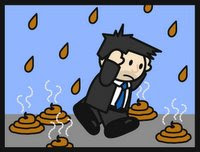Isabella Kenfield | May 26, 2009
Americas Program, Center for International Policy (CIP) americas.irc-online.org
On April 18, seven members of the Brazilian Landless Workers' Movement (MST) were shot by private security guards on a farm in the Amazon that belongs to Agropecuária Santa Bárbara Xinguara S/A, a company controlled by international banker Daniel Dantas. A billionaire with former ties to Citigroup, Dantas is Brazil's largest producer of cattle, and presently embroiled in a major financial and political scandal that reaches into the U.S. courts and financial system.
The violence took place at the Espírito Santo cattle ranch in the municipality of Xinguara, in the state of Pará. About 120 families organized in the MST have been occupying part of the thousand-acre ranch since February. The day before the shootings, they participated in a march to commemorate the thirteenth anniversary of the massacre of 19 MST members who were gunned down by the military police in 1996, just 60 miles away in El Dorado dos Carajás. No one has ever been convicted or imprisoned for the massacre.
A judicial order for Dantas' arrest issued last July cites Agropecuária Santa Bárbara Xinguara S/A, owned by his sister Verônica, as part of a scheme by Dantas' Opportunity Fund and Citigroup's Brazilian subsidiary Opportunity Equity Partners Administradora de Recursos Ltd. for the "possible practice of acts of fraudulent management."1
"Agropecuária Santa Bárbara owns the biggest cattle herd in Brazil, and the second largest in the world," reports Friar Henri Burin des Roziers, 78, from the Pastoral Land Commission's (CPT) office in Xinguara. The company led the drive that enabled Brazil to overtake Australia as the world's largest exporter of beef in 2004.
Brazil's explosive growth in its cattle population has overwhelmingly occurred in the Amazon, and Pará has the second largest herd in the country. "In the last five years in Pará, Daniel Dantas bought 52 farms in eight municipalities, totaling 800,000 hectares," reports Charles Trocate of the MST's national leadership in Pará.
Dantas' cattle empire is exacerbating the root of rural violence in Brazil: inequality in land ownership. In Brazil just 3% of the population owns two-thirds of all arable lands. Concentrated land ownership translates into extreme wealth disparity. Brazil is a country of about 190 million people, and some estimate that 50% of the population is living on less than two dollars per day.
Since February, the MST has organized several hundred landless rural families to non-violently occupy hundreds of hectares on three of Agropecuária Santa Bárbara's farms in Pará. There are presently 120 families living at the Espiríto Santo farm in Xinguara, where the violence in April took place.
According to Trocate, "These properties are involved in this system of [money] laundering, and of corruption of the national financial system … The MST demands that these lands be returned to the nation for the creation of projects on agrarian reform settlements." A communiqué from the CPT in Xinguara states that on Jan. 1, 2009, a state agrarian affairs judge blocked the registration of Agropecuária Santa Bárbara's title to the farm, and the state "reclaimed its legitimate ownership of the area."
On April 18, 20 MST members presently occupying Espirito Santo farm went to the forest to get firewood and wooden poles to reinforce the tarp shelters that the families are living in. The MSY reported, "The security guards arrived armed and threatened the MST. Rural worker Dialme Ferreira Silva was obliged to lie down on the ground, while the others ran away. He was imprisoned, humiliated, and hit by the security guards on Dantas' ranch." Later, Silva stated that the guards had shown him a list of local MST leaders, ordering him to identify where they were. "We are going to kill all of the leaders of the encampment," said one of the guards.
Back at the MST encampment, the families organized to rescue Silva, and marched back to the headquarters of Agropecuária Santa Bárbara. A YouTube video shot by a reporter from the right-wing national Globo news network who accompanied the security guards shows the MST marching to the company's farm headquarters, waving flags and farm tools. At the headquarters, they smashed the windows of, and overturned, a car. The farm's security guards were armed with shotguns and pistols and a shootout began.2 Seven MST members and one security guard were wounded. Three wounded MST members were detained by the guards while the others ran away, alerted the military police, and blockaded the BR-150 highway while waiting for the police to arrive. Others began to send out alerts through the movement's national and international media network.
Meanwhile, the Globo reporter was airlifted off the ranch by Agropecuária Santa Bárbara. The Globo video, which does not discuss the events leading up to the conflict, was orchestrated to criminalize the MST and turn public opinion against it. Asked if he thinks Dantas was directly involved in the planning of the conflict, des Roziers responds, "Agropecuária Santa Bárbara does not do anything without being told to. It's obvious he took part."
The Fall of a Financier
When U.S.-born Sister Dorothy Stang was murdered in Pará in 2005 due to her work for the Pastoral Land Commission (CPT), a Catholic organization with roots in liberation theology, many Americans preferred to think that rural violence in Brazil is perpetrated by backwater, cowboy landowners. Yet the violence on April 18 in Xinguara highlights the relationship between financiers linked to Wall Street and violent conflicts over land in the Amazon, as two very different approaches to development for the region clash.
According to Trocate, "On one side are the large economic groups, allied to the multinationals and often to government offices, that use the concentrated ownership of land for the intensive exploitation of resources and the accumulation of capital. And the other side, the workers and the native population that want the deconcentration and sharing of land, protection and sustainable use of nature, food production, housing, and lives with dignity for the Brazilian rural poor."
A self-made billionaire, Daniel Valente Dantas is "a gifted financier who has serially fallen out with his business partners," according to The Economist.3 Born in Bahia state in 1954, in 1982 Dantas completed a doctorate at Getulio Vargas Foundation in São Paulo, then went on to post-graduate research at the Massachusetts Institute of Technology (MIT). After MIT, Dantas returned to Brazil and began working for a Brazilian bank; he had a falling out with its board, left with a $70 million settlement, and founded Opportunity Capital Partners in Rio de Janeiro in 1994.4
By all accounts, Dantas had a brilliant understanding of the process of consolidation of neoliberalism in Brazil in the late 90s. He became a facilitator for the privatization of Brazil's state-owned telecommunications industry. "Mr. Dantas positioned himself as the man with the needed expertise and contacts. He enjoyed easy access to the government of President Fernando Henrique Cardoso, including meetings with the president himself. That influence carried through into the government of President Luiz Inácio Lula da Silva."5
Dantas was hired by Citigroup, Inc. to help buy Brasil Telecom at a $19 billion privatization auction in 1998.6 Telecom Italia and some Brazilian state pension funds became the other major shareholders. When Telecom Italia's relationship with Dantas deteriorated, Citigroup backed Dantas.
But by 2005, Dantas' relationship with Citigroup had also soured and Citigroup ousted him from its $650 million fund in the Cayman Islands, CVC/Opportunity Equity Partners, which managed Citigroup's private equity investments in Brazil, including the stake in Brasil Telecom. While the Times claimed Citigroup "removed" Dantas from "its" fund,7 the Associated Press reported that Opportunity Equity Partners was Dantas' company in which Citigroup was the "sole investor."8 Citigroup asserted that Dantas had acted against its interests, but it may have been more a falling out among thieves. Evidence indicates that Citigroup knew about and participated in Dantas' illegal finance practices until they presented legal and public relations problems.9
In 2004, it came to light that Brasil Telecom's management, appointed by Dantas, had hired the American firm Kroll to gather information on Telecom Italia executives to be used in litigation. But the investigation also targeted people who had since become high-ranking government officials in the Lula administration, which led to a police inquiry.10
Last July, Dantas was arrested and indicted for money laundering, tax evasion, and racketeering to embezzle public pension funds in Operation Satiagraha—the country's largest financial and political corruption case in recent history. Dantas was accused of having used his Opportunity Capital Partners holdings (estimated by Bloomberg to be worth $11.3 billion in 2008) to mastermind a complex money laundering operation that included significant funds in the Cayman Islands and Delaware. In September, the Brazilian government froze $300 million of Opportunity's assets, and in December, Dantas was fined $5 million and sentenced to 10 years in prison for trying to bribe a police officer. He has appealed the charges. On April 28, the federal police formally accused Dantas, his sister Verônica, and four more directors of Opportunity for fraudulent management, debt evasion, formation of gangs, and money laundering.
According to documents from the Brazilian Federal Police, "We identified dirty and complex business practices, involving large maneuvers and crafty accounting utilized to hide the deviant assets … We verified that everything begins with the umbrella with Citigroup ..."11
Back to the Land
Out on bail and awaiting appeal and new charges, Dantas' financial empire is crumbling, and he seems to be seeking to consolidate his landholdings. The violent attack on the MST at Agropecuária Santa Bárbara's farm in Xinguara may well have been an attempt to smack down what is the most powerful grassroots movement to stand in the way of Dantas pillaging what they consider to be the natural and economic wealth belonging to all Brazilians.
The MST and the CPT are members of the international food sovereignty movement La Via Campesina.12 Via Campesina supports food sovereignty, agrarian reform, and agro-ecology as solutions to the climate, food, and financial crises. Brazil is the fourth-largest emitter of greenhouse gases in the world, and deforestation is responsible for 75% of its emissions. Land converted to cattle grazing pasture is the leading cause of deforestation in the Amazon, where most Brazilian deforestation occurs. Worldwide, tropical deforestation is believed to be responsible for at least 20% of all greenhouse gasses; when land-use changes, transportation, and petroleum-based fertilizers and chemicals have all been accounted for, industrial agriculture is believed to contribute to about one-third.
Both the MST and the CPT have developed national policies for agro-ecology that mandate land be used for the sustainable production of healthy, culturally-appropriate food for local, regional, and national populations, produced by small and medium-sized family farmers, as opposed to industrial production of commodities for export—such as beef—on vast tracts of land controlled by a few wealthy landowners.
These grassroots policies and practices fly in the face of Dantas' plans for the region. With his financial business in shambles, his pending legal battles, and the country's agro-industrial boom, expansion of large-scale farming appears as a highly attractive business venture. With the expansion of production for bio-fuels and commodity export, lands in Pará stand to be converted from cattle ranching to the more lucrative production of soybeans or sugarcane, pushing the cattle-grazing deeper into the forest. Given the legacy of impunity for rural violence in Brazil, landowners are unafraid of repercussions when repressing those who resist agro-industrialization.
Within the region and nationwide, agribusiness and right-wing politicians have responded to the conflict by calling the MST criminals. Comments on media web sites have been disturbingly hostile toward the movement. Yet the occupation continues, and the state and federal governments do not appear ready to evict the MST. The governor of Pará has a good relationship with the MST, and the federal government has no interest now in aiding a discredited Dantas.
O Globo reports that on May 14 the Brazilian National Secretary of Justice sent documents to the U.S. Justice Department requesting it block more than $450 million of Opportunity's assets in the United States based on the findings of the Operation Satiagraha investigation. The United States responded that Brazil's request will be analyzed between August and September. The funds, which were due to be unblocked this week, will remain blocked in the interim.13 It is unclear if or how Citigroup's interests in Opportunity may be influencing U.S. decisions on the Dantas affair.
The money trail, specifically if and how Citigroup fully disengaged its assets from those of Dantas, is still difficult to trace. In March, Opportunity Equity Partners Administradora de Recursos Ltd., Citigroup's Brazilian subsidiary, sold its concession to the Rio de Janeiro metro,14 a business venture that is also mentioned in federal documents related to Operation Satiagraha as having been enmeshed in the corrupt relationship between Dantas and Citigroup.15
Meanwhile, in Pará, the violence is escalating. On May 11, three MST members were shot by security guards on a farm owned by Agropecuária Santa Bárbara in El Dorado dos Carajás.16 According to an annual report released by the CPT in April, of 90 death threats against landless families, rural workers, organizers, and religious advocates in Brazil in 2008, 35 occurred in Pará (des Roziers had his life threatened last year); while of the 28 murders, 13 occurred in Pará.17
"The conflict emerges exactly because we are denouncing all of this corruption, concentration, and destruction of the Amazon," says Trocate. "And we will continue struggling for this."
http://americas.irc-online.org/am/6140
Wednesday, May 27, 2009
Subscribe to:
Post Comments (Atom)












No comments:
Post a Comment